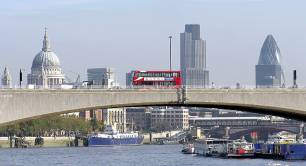Why the dawn of the Civil Economy is now
A new phase of Enlightenment is on the Horizon...
It has started. Just as the Enlightenment led us to create a Civil Society, it will now lead us to create a Civil Economy. A revolution is underway and democracy will be changed forever.
It was fitting therefore that the latest prophetic signal of this appeared in Westminster recently when ShareAction, a charity that promotes responsible investment by pension funds and fund managers, launched their Manifesto for Responsible Investment, with the inconsequential backdrop of a government being reshuffled.
In the Atlee Room, David Pitt-Watson reminded us of Clement Atlee and his quaint, defunct belief in the ‘common ownership of the means of production’. Except that the commons do, as it happens, actually own the means of production. The major owners of the biggest companies in the world are not bankers and hedge fund managers. They are, in fact, us. You and me. Ordinary people. We, through our pension funds and other savings products, are the major owners of the world's biggest companies.
Whilst we fully appreciate and support the crucial social role that these companies play, we despise some of what they are doing to the world – with their fossil fuel extraction, their tax practices, their low pay for ordinary workers and the obscene remuneration packages they create for themselves. We know we are being ripped off by executives, even whilst these employees of the businesses that we own are incentivised to create dependency in us. We understand that we bear personal responsibility for our lifestyle choices. But we also see that the capitalist system has accidentally evolved so that it now objectifies us in order that it can feed off us.
If we own these companies, should we not have some sort of say in what they are doing to us – and our friends, our communities, our fellow humans?
This was the question being posed by ShareAction in the Atlee Room. It is a question about enfranchisement. It is about whether or not we have a say in how our own capital is deployed in our society. This is the suffrage issue of our time and it is one where we are all – all – disenfranchised.
The response of the Shadow Pensions Minister was to tell us that of course this is all nonsense because representing the interests of pension beneficiaries is a matter for pension fund trustees. Strange to see a Labour MP making the same argument against universal economic suffrage as the elites of yore made against the suffragettes – or the Civil Rights movement, for that matter.
Our time is no different to that of previous struggles. There is an establishment who defend a corrupt status quo against the people.
Thus far, the Enlightenment has left us with one key means of democratic expression – our vote. An information revolution has created the conditions for us to now have three:
The first remains our vote. Whilst this is largely devalued at present (as we have come to understand that we are voting for the sum of lobbyists) this will change as our anachronistic representative democratic system is forced to embrace open government – using technology to enable participation at national, regional and local levels.
The second, and arguably our greatest power, is our consumption – many efforts are afoot to help consumers align their values with their consumption. For example, the fast growing B Corporation movement seeks to redefine success in business by using business as a force for good. It is now comprised of over 1,000 companies in over 100 industries in 35 countries, involving over 30 million consumers. On the flip side, Paul Polman, CEO of Unilever, speaks of global corporations risking the loss of their licence to operate. When we organise to express our democratic will as consumers by switching our consumption, we can throttle companies that do not reflect our values, and breathe life into companies that do.
The third is our savings. Whilst much attention goes to crowdfunding, the biggest savings pool is our pensions. We have a right to express how we want this money to be used, and what effect we want it to have in our communities and on our planet. To deny us this right is no longer acceptable. History has moved on and our economic disenfranchisement will come to be seen by our children and our children’s children in much the same way that we view serfdom. The City and the political establishment – and their associated vested interests – are on the wrong side of history. ShareAction’s manifesto should be supported by all, and the reasons why it (most likely) will not are increasingly obvious to everyone.
The first decade of this millennium – and the final decades of the last – were the darkness before the dawn. During this decade we have started to see the first signs of a new phase of the Enlightenment on the horizon. A new day is coming – a day when a Civil Economy will operate alongside our Civil Society.



